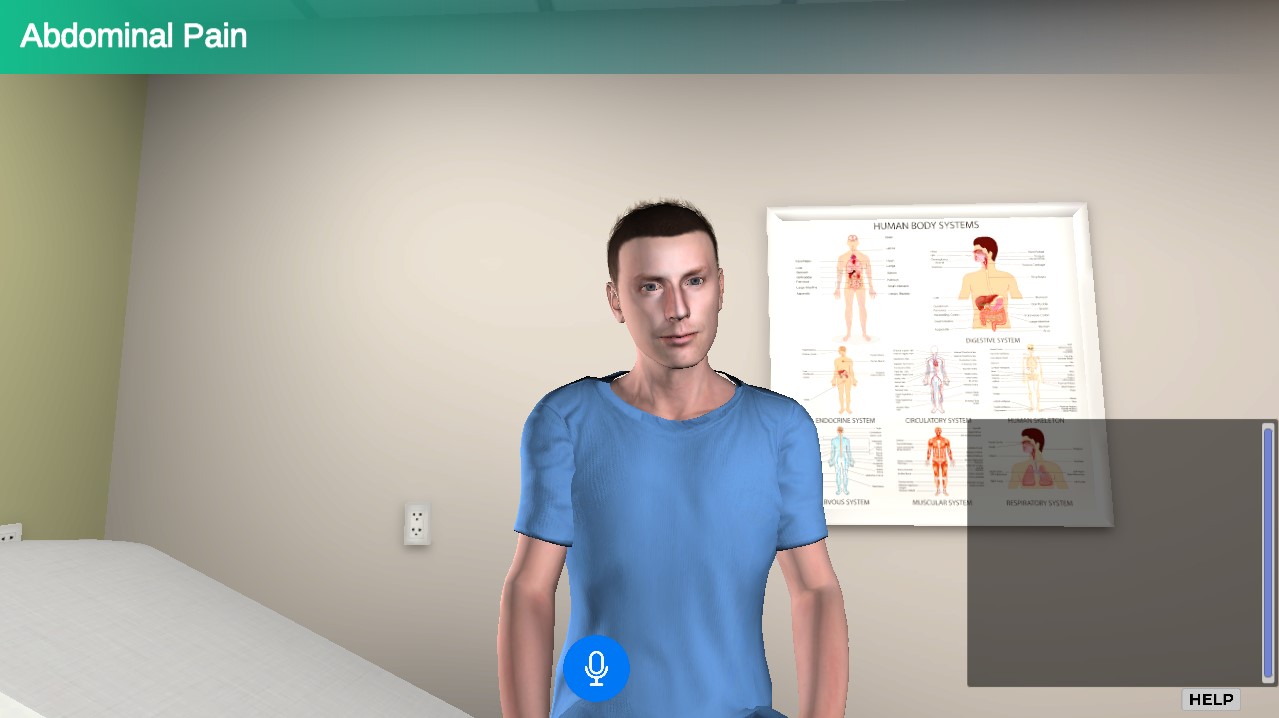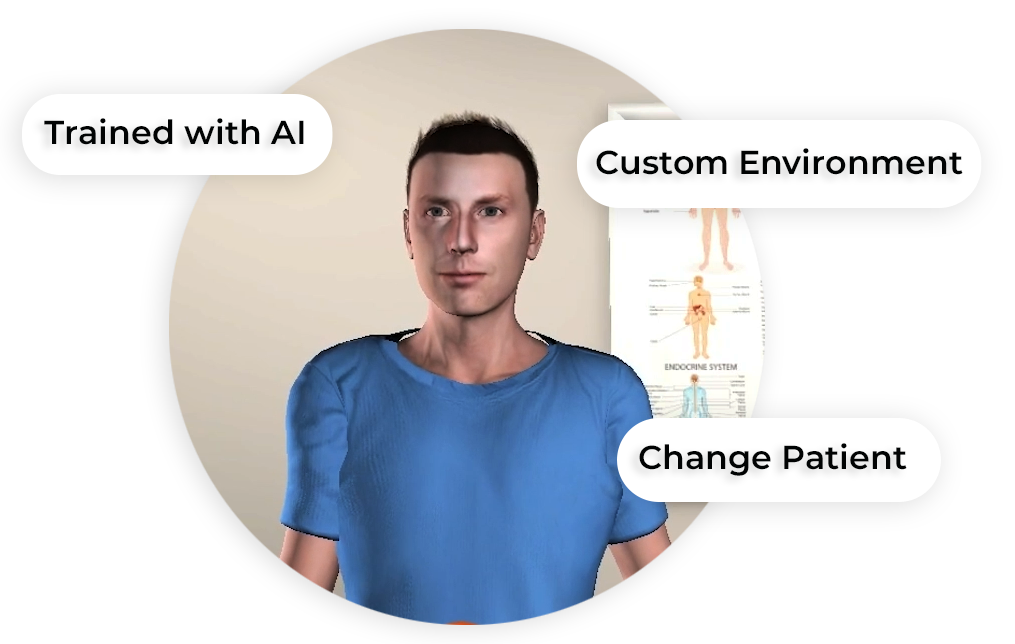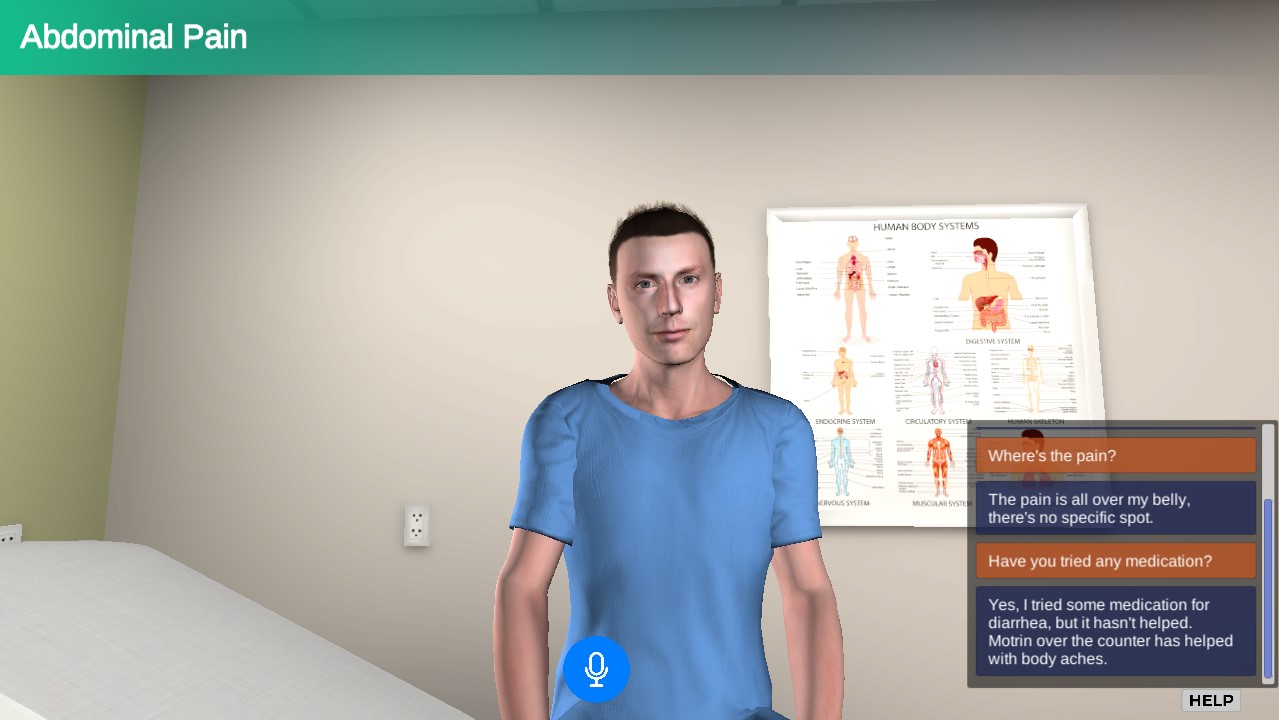Patient Assessment – Abdominal Pain
Available in VR and web browser
This Abdominal Pain patient assessment tool is designed to help learners practice their patient assessment skills.
Employing end-to-end AI and technologies like large language model (LLM) and deep learning, these virtual ‘clients’ possess the ability to respond like real humans. Learners can conduct a completely organic conversation with the client, asking them about their symptoms and problems faced. Based on the client’s responses, a line of diagnosis can be established and treatment plan formulated.
The MedVR Ed XR Platform provides trainers and instructors the facility to review conversation logs and analyze learner performance based on customized rubrics. Based on the performance review, trainers will be able to provide precise and effective feedback.
- Collect and evaluate pertinent health assessment data through application of clinical knowledge, skills, and experience.
- Apply the diagnostic reasoning process during a simulated patient health assessment encounter.
- Formulate diagnostic hypotheses through the application of one’s clinical experience, knowledge of pathophysiology, and obtained health history assessment data.
- Evaluate obtained health history information to formulate relevant differential diagnoses.

- Bickley, L. S., Szilagyi, P. G., Hoffman, R. M., & Soriano, R. P. (2020). Bates’ pocket guide to physical examination and history taking. Lippincott Williams & Wilkins.
- Dunphy, L. M., Winland-Brown, J., Porter, B., & Thomas, D. (2022). Primary care: Art and science of advanced practice nursing. FA Davis.
- Swartz, M. H. (2020). Textbook of physical diagnosis E-book: history and examination. Elsevier Health Sciences.
Customize Your Case
Build your own AI-Humans patient
MedVR Education is bringing to you a no-code authoring platform to create new patient cases and customized patient history. Put together your own cases by making selections from a wide range of customizing features.
- Create with web-based authoring tool
- Publish in VR, desktop, and mobile devices
- Train your virtual patient by yourself
- Select patient from a diverse background
- Choose preferred virtual environment
- Perform real-time testing
- Track and train new data

 AI Patient Assessment
AI Patient Assessment Natural Language Processing
Natural Language Processing
Case History

Abdominal Pain
David is a 32-year-old male suffering abdominal discomfort for the past three days. He’s had a 100F fever and feels a cramping pain in his belly. David does not have any shortness of breath but he does feel nauseous with an urge to vomit. Nothing seems to improve his condition and eating something makes it worse. As a healthcare provider, your task is to conduct an initial assessment of his condition by asking him questions and obtaining a health history. His responses to your questions will be the basis on which you develop a list of possible differential diagnoses for the cause of his abdominal pain.


